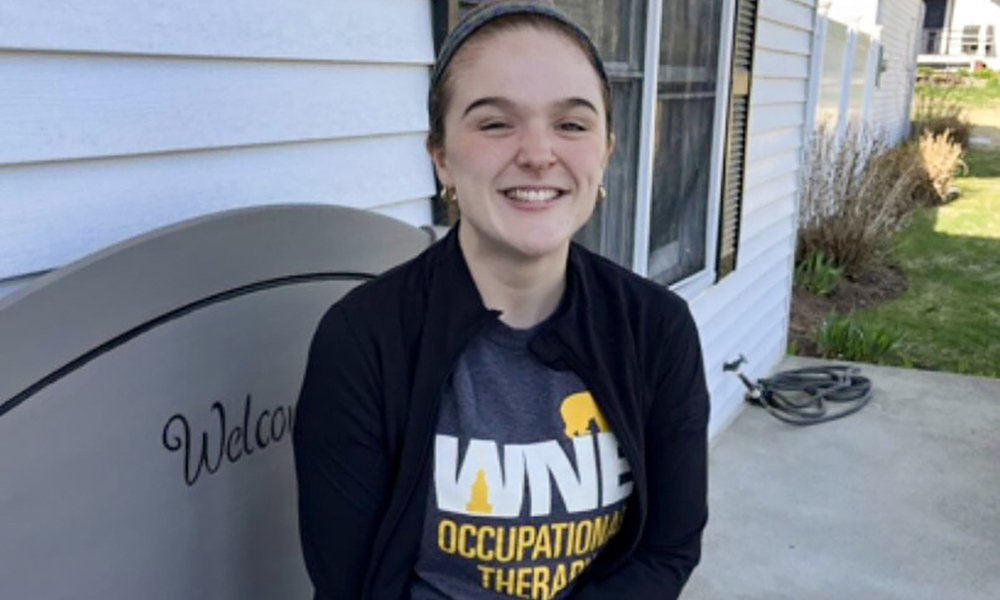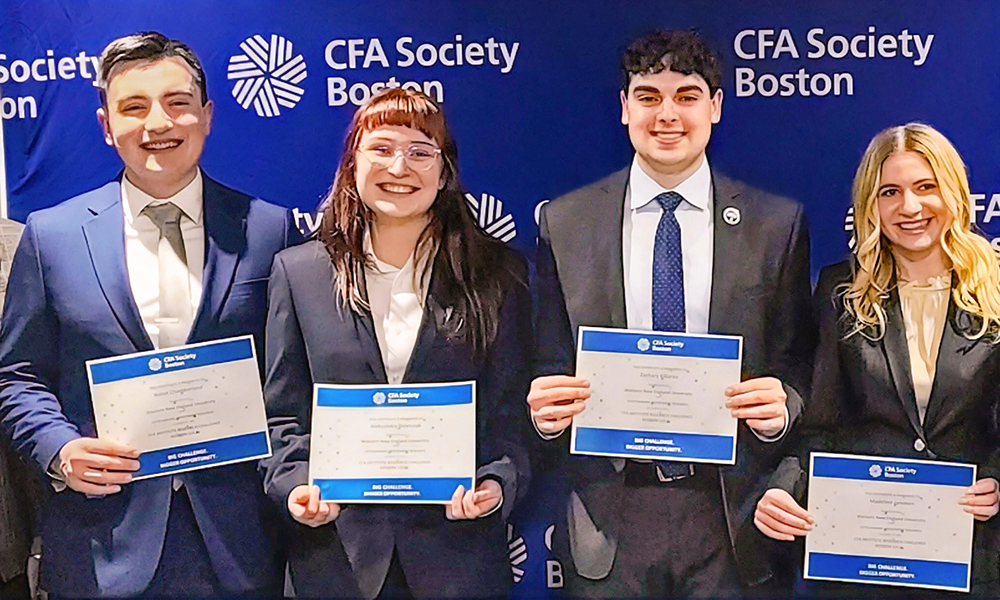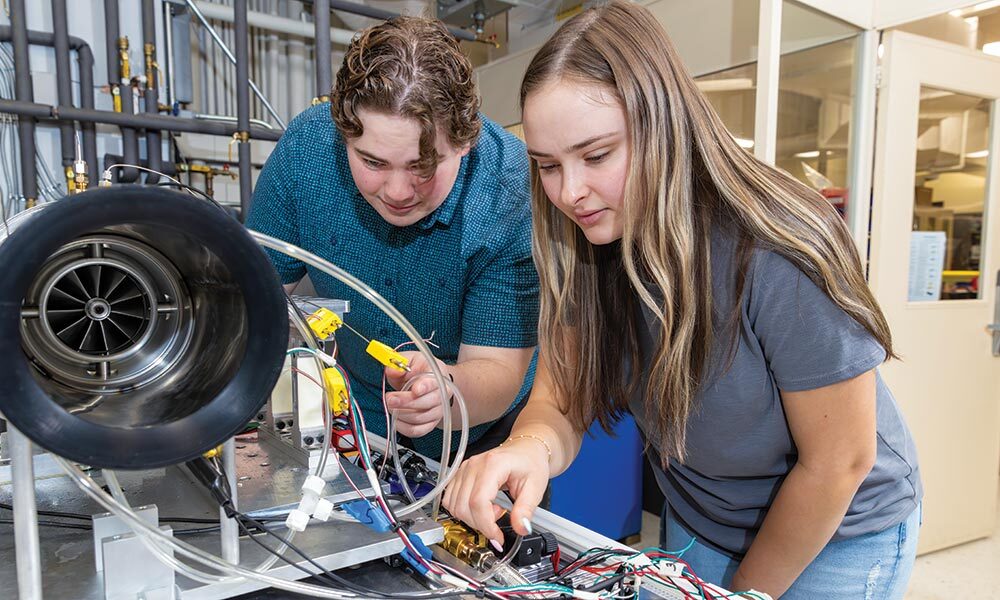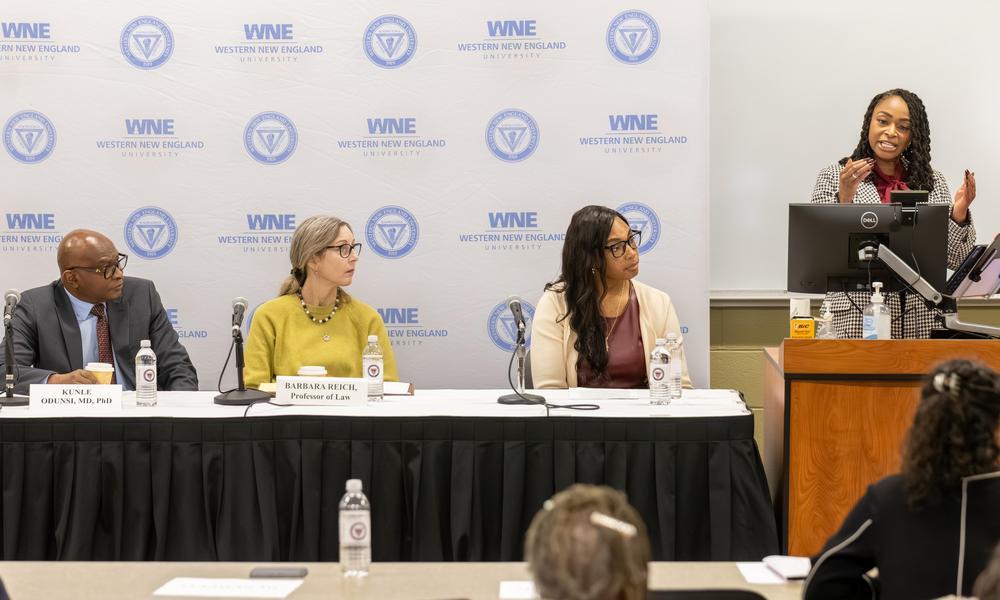For Western New England University Doctor of Occupational Therapy student Emily Labrie ‘25, her doctoral capstone was both a professional milestone and a deeply personal mission.
Labrie partnered with the Cancer House of Hope (CHH) in West Springfield, a community resource offering comfort and support to individuals undergoing cancer treatment, survivors, and their families. From January through April, she became the first to provide occupational therapy services at CHH—helping members regain essential skills for daily living, from cooking and cleaning to managing fatigue and coping with the emotional toll of cancer.
Her inspiration for the project was rooted in her own family’s experience. When her mother, Lauri, was diagnosed with stage four uterine cancer in late 2023, Labrie witnessed the gaps in care—particularly the lack of holistic support addressing both physical and mental well-being. “In many cases, cancer care is highly clinical,” she said. “I wanted to focus on the whole person, not just the disease.”
At CHH, Labrie combined functional rehabilitation with education and emotional support. She taught members how to conserve energy, manage treatment-related side effects like peripheral neuropathy, and reframe daily activities to be more manageable. She also provided balance and strengthening exercises, tracked measurable improvements using tools like the Berg Balance Scale, and saw dramatic reductions in members’ perceived exertion during everyday tasks.
Equally important was her emphasis on mental health. Drawing on her undergraduate background in psychology and prior mental health fieldwork, Labrie addressed depression, anxiety, and stress—common, yet often unspoken, aspects of a cancer diagnosis. “If you can’t make your bed in the morning, it changes how you see yourself,” she explained. “That emotional impact is just as real as the physical symptoms.”
The project also gave Labrie the opportunity to help members navigate the healthcare system, from advocating for workplace accommodations to ensuring patients had the right questions for their doctors. For many, the results were life-changing. “It was like night and day,” said CHH Program Director Margaret Toomey. “Emily made a big difference in their lives.”
For Labrie, the experience reaffirmed her commitment to occupational therapy’s person-centered approach. “You have to care deeply but also take care of yourself so you can keep showing up for others,” she reflected. “This project allowed me to do that—and to give back to a community that welcomed me from day one.”
Her impact will continue beyond her time at CHH. Before completing her capstone, Labrie established a referral pathway for CHH members to access WNE’s pro bono occupational therapy clinic, ensuring ongoing access to care. She has taken her experience with her back to her home in Rhode Island where she is currently working at Friendly Nursing Home in Woonsocket.
As she looks ahead to her career, Labrie says the lessons from CHH will stay with her. “Occupational therapy is about helping people live the lives they want to live, no matter what challenges they face. That’s what I hope to do—always.”





